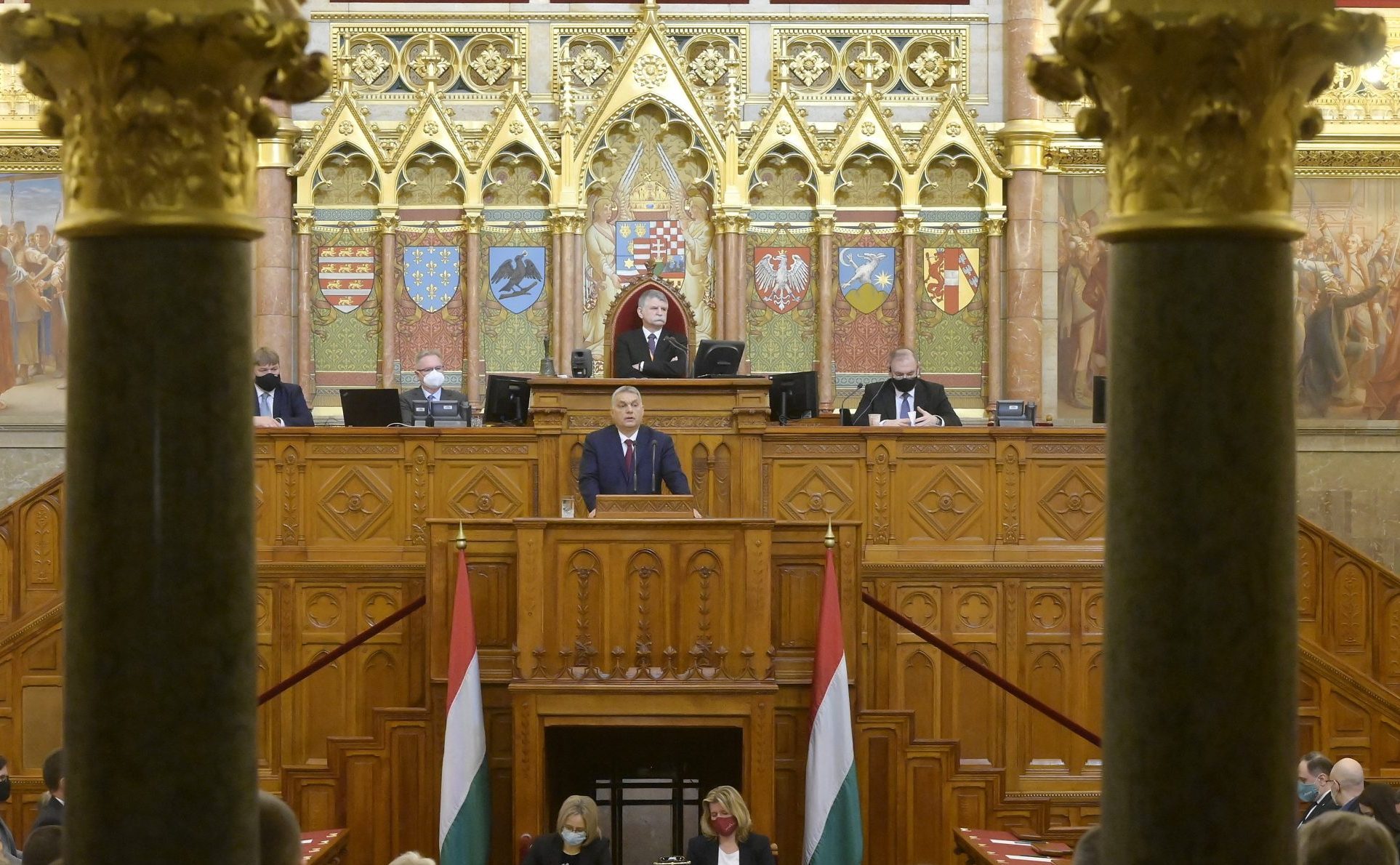
Before the start of ordinary business, Mr Orbán stressed that since November the cabinet had not changed the protective measures in effect, and we had therefore succeeded in keeping the epidemic under control. In countries where measures have been changed continuously, the third wave has erupted with elemental force, he observed.
He pointed out at the same time that the numbers regarding the epidemic are on the rise in the whole of Europe, including in Hungary. In Hungary, the epidemic curve has not abated for 10 days, the downward phase of the second wave has come to a halt, and it is presumed that due to the appearance of a more infectious virus variant, there could be a rise again. This is why it is necessary to extend the government’s authorisation received from Parliament, and to consistently comply with the stringent rules in effect at present.
Regarding the reopening of the country, he said the government wants to not only turn the “‘closed’ sign” to ‘open’, but wants to restart the economy and civic life as a whole. “We want to come out of the epidemic stronger than we were going in,” he stressed.
The Prime Minister described the vaccine as a condition of reopening because without the vaccine the virus cannot be stopped.
This is why he regards the swift procurement of as many vaccines as possible as the most important task at present. “We are happy with all vaccines which are safe and with which millions of people have already been inoculated worldwide,” he stated.
Regarding the Russian vaccine, he said over a period of 3 months, vaccines enough for the inoculation of 1 million people will arrive in Hungary. Concerning the Chinese vaccine, he informed Members of Parliament about the fact that they are buying vaccines enough for the inoculation of 2.5 million people.
As a result, Hungary now has licences for 5 effective and safe vaccines, and this constitutes the key to the commencement of mass vaccination, he said in summary.
Despite the uncertainties of vaccine supplies in Europe, we are able to state safely that by the end of May, Hungary will be able to vaccinate 3.5 million more people than EU countries of comparable sizes which only rely on Western vaccines, the Prime Minister said, adding that he believes there is a realistic chance that by the beginning of April, the number of vaccinated persons will exceed 2 million, meaning that all registered persons over the age of 60 will have been vaccinated.
In his view, Hungary needs all the vaccines it can get because it is the vaccine that saves lives and jobs. He added that no one should turn the vaccine into a political issue, “it is not on the issue of vaccines that anyone should try to prove their allegiance to America and Brussels”.
He indicated that an online consultation regarding the lifting of restrictions would be launched; people will be asked for their opinions on 7 questions.
Regarding the situation of the economy, he said the protection of jobs was at the centre of the government’s crisis management. Therefore, they have introduced a credit debt repayment moratorium, are helping businesses in trouble with furlough grants, are assuming one half of the wages of workers in sectors which are now in a difficult position, have cancelled the social contribution tax, and have halved the local trade tax, he listed. Regarding targeted furlough grants, he stressed that they had succeeded in saving 250,000 jobs with grants worth HUF 80 billion. He also highlighted that the government had provided investment grants for 1,434 businesses which had helped to retain or create around 280,000 jobs.
He described the economy protection measures adopted by the government as successful because in December the same number of people had jobs as before the pandemic, while in Hungary the unemployment rate is the third lowest in the EU.
The Prime Minister confirmed that as soon as there are enough vaccines, they will start gradually lifting the restrictions.
The government has launched an economy restarting action plan, he continued; the cabinet is convinced that the economy must be restarted with the creation of new jobs, the reduction of taxes, and investment grants.
The seven measures of the action plan are: reduction of the VAT on housing construction projects to 5 per cent, housing refurbishment programme, furlough grants for businesses in trouble, pay rise programme for physicians, gradual re-introduction of the 13th monthly pension, personal income tax exemption for those under 25, and availability of interest-free rapid loans of up to HUF 10 million for the smallest businesses, he stated.
The next measure of the action plan will be an overarching investment grant programme which will be co-financed with the EU and will target higher education: the country’s largest ever university development plan from investments worth HUF 1,500 to 2,000 billion will be implemented, he announced.
Mr Orbán stressed that the logic of today’s crisis management is different from that followed before 2010; this is a nationally oriented concept where it is not the people who are required to pay the price of the crisis, in contrast to the pre-2010 world where pensioners were the main victims of crises.
Regarding the gradual re-introduction of the 13th monthly pension, he observed that it was a duty to appreciate also financially the efforts of those who had built the country with a lifetime’s work.
Commenting on personal income tax exemption offered to the under 25s, he said the government believes it is important to enable every young person to stand up on their own two feet and to start an independent life.
In summary, the Prime Minister said Hungary is a strong country, and has therefore stood its ground well during the epidemic.
He finally said in the coming months, the government will focus on three main issues: they will complete the mass vaccination campaign; after the consultation, based on the people’s opinions, they will gradually and cautiously lift the restrictions now in effect; and they will restart the economy.
The Prime Minister expressed hope that Hungary will be stronger after the epidemic than it was before.
Mr Orbán asked Members of Parliament to support the government’s crisis management and economy restarting action plan regardless of party affiliation.


